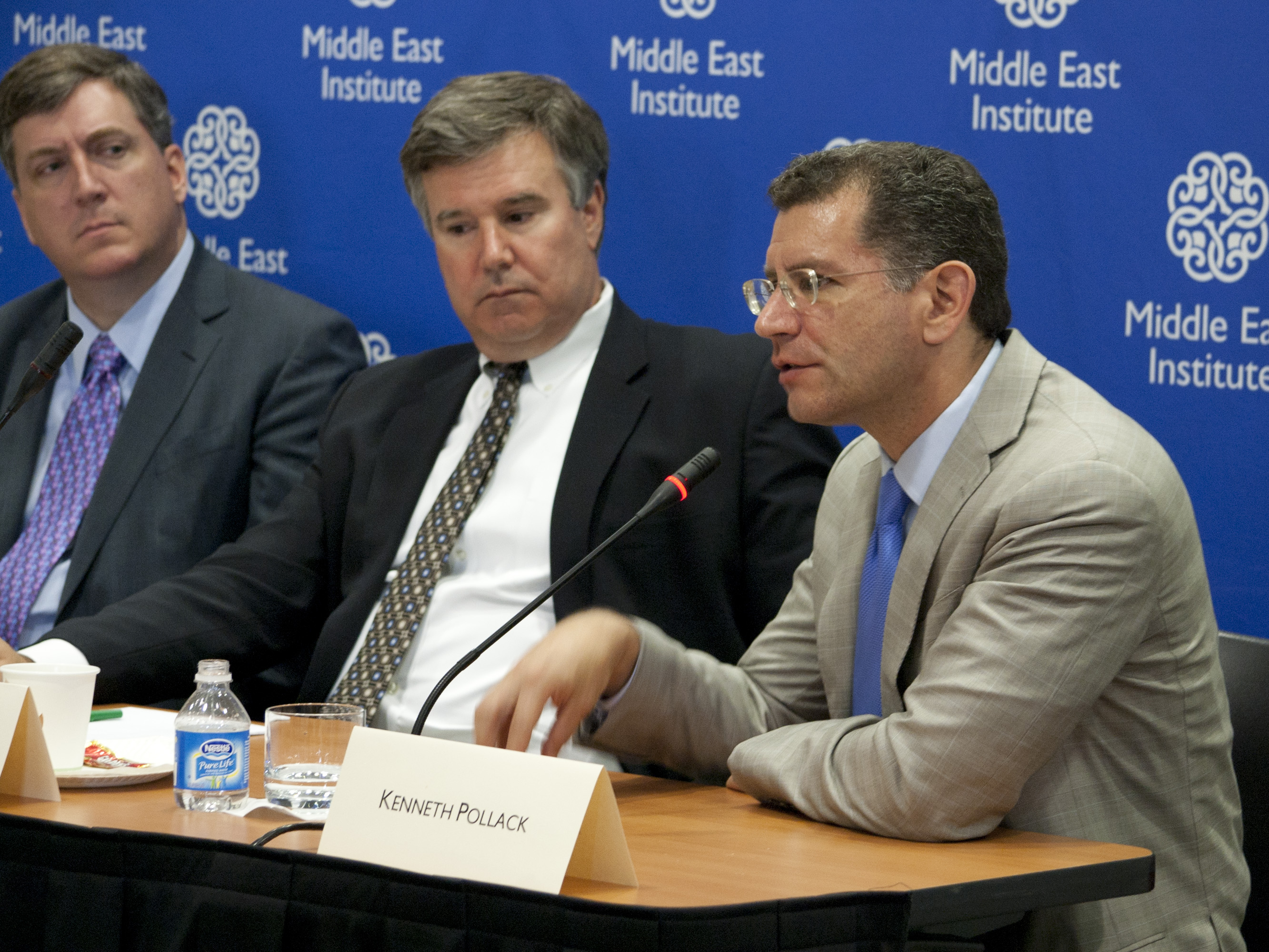The Middle East Institute is proud to host John Desrocher, Gregory Gause, Ken Pollack and Amb. Samir Sumaida'ie for a discussion about Baghdad's complex relations with its Arab neighbors during a time of regional transition. As Iraq seeks to reclaim its role as a powerful player in the Arab world, what obstacles does it face as it attempts to project power and influence in a region still largely suspicious of Iraq's motivations and alliances? What's the view of Baghdad from the Arab Gulf and what influence does Iraq have on the unfolding crisis in Syria?
Bios:
John Desrocher took up his position as the director of the Office of Iraq Affairs in September 2010. He spent the preceding year at the U.S. Embassy in Baghdad as minister counselor for Economic Coordination, responsible for U.S.-Iraq economic policy issues. He has extensive experience in international trade and in Middle East issues and has served as counselor for Economic and Political Affairs at the U.S. Embassy in Cairo. He participated in Palestinian-Israeli economic negotiations while serving at the U.S. Consulate General in Jerusalem in the late 1990s and served as State Department desk officer for Iraq in the mid-1990s.
Gregory Gause is professor of political science at the University of Vermont, and was director of the University's Middle East Studies Program from 1998 to 2008. In 2009-2010, he was the Kuwait Foundation Visiting Professor of International Affairs at the Kennedy School of Government, Harvard University. He was previously on the faculty of Columbia University (1987-1995) and was a Fellow for Arab and Islamic Studies at the Council on Foreign Relations in New York (1993-1994). He has published three books, among them The International Relations of the Persian Gulf (Cambridge University Press, 2010).
Kenneth Pollack is a senior fellow at the Saban Center for Middle East Policy at the Brookings Institution. He is an expert on national security, military affairs, and the Persian Gulf. He was director for Persian Gulf affairs at the National Security Council. He also spent seven years in the CIA as a Persian Gulf military analyst. He is the author of A Path Out of the Desert: A Grand Strategy for America in the Middle East (Random House, 2008)
Amb. Samir Sumaida'ie was appointed Iraq's ambassador to the United States in April 2006. Following the U.S. invasion of Iraq, Sumaida'ie served as a member of Governing Council (GC) in Iraq. In the GC, he was chairman of the media committee, helped found the Iraqi Telecoms and Media Commission and the Public Broadcasting Institution, and held positions on the security, finance, and foreign relations committees. He then served as the minister of interior in Baghdad. In this capacity he managed a domestic security force of over 120,000. Prior to his appointment as ambassador to the U.S., Sumaida'ie served as permanent representative to the United Nations from July 2004 to April 2006.
Moderator: Phebe Marr is a prominent historian of modern Iraq. She was research professor at the National Defense University and a professor of history at the University of Tennessee and at Stanislaus State University in California. She is the author of The Modern History of Iraq (Third Edition, Westview Press, 2011). She is a member of the Board of Advisory Editors of The Middle East Journal.












